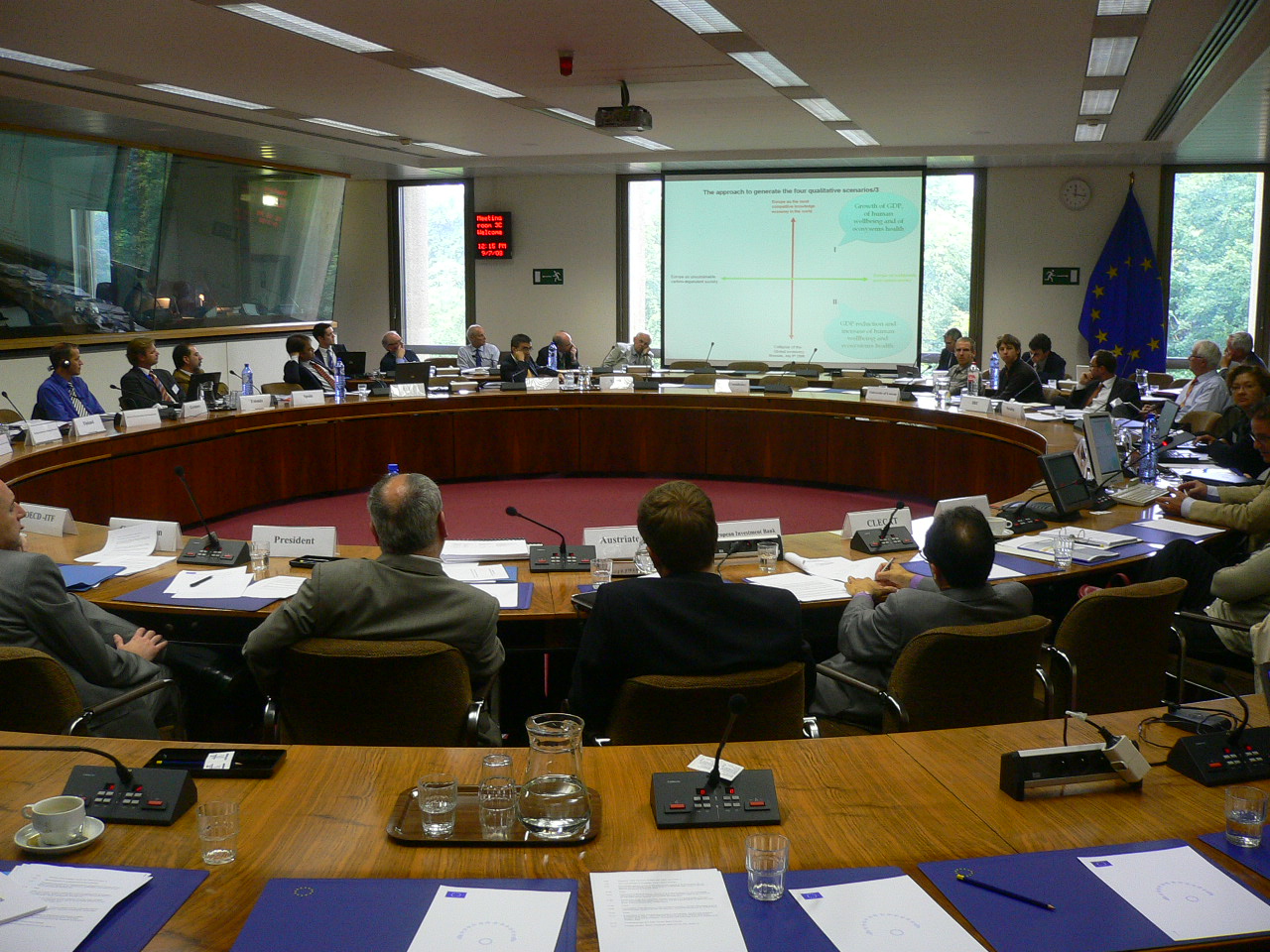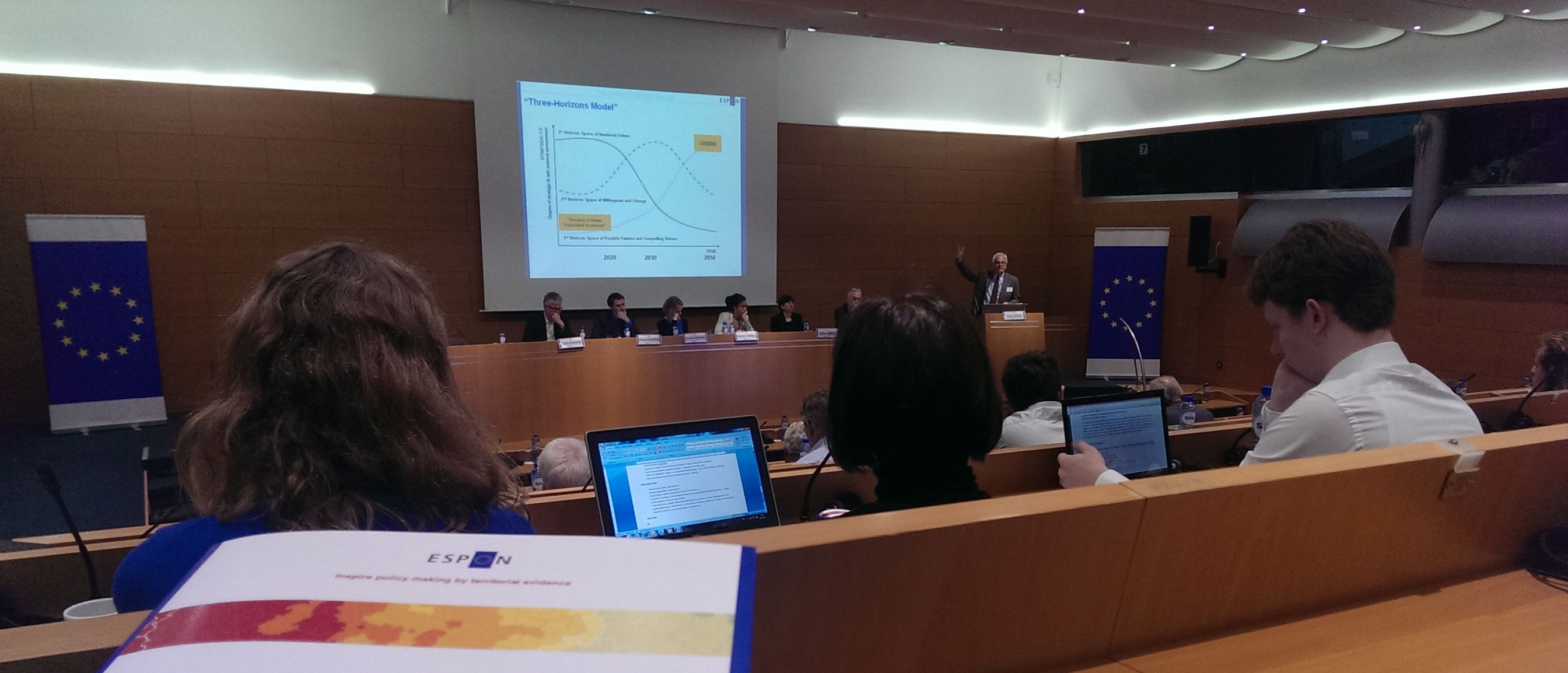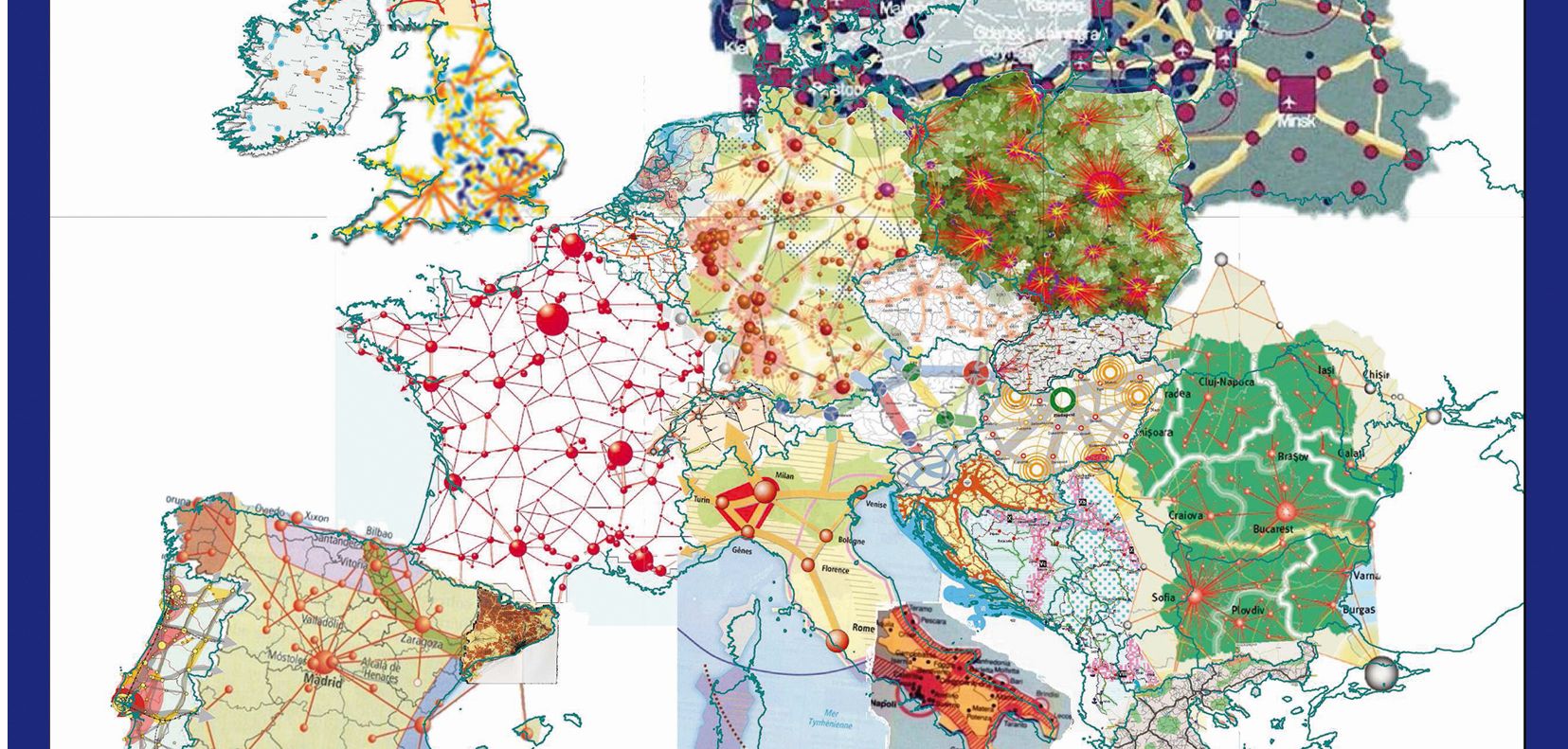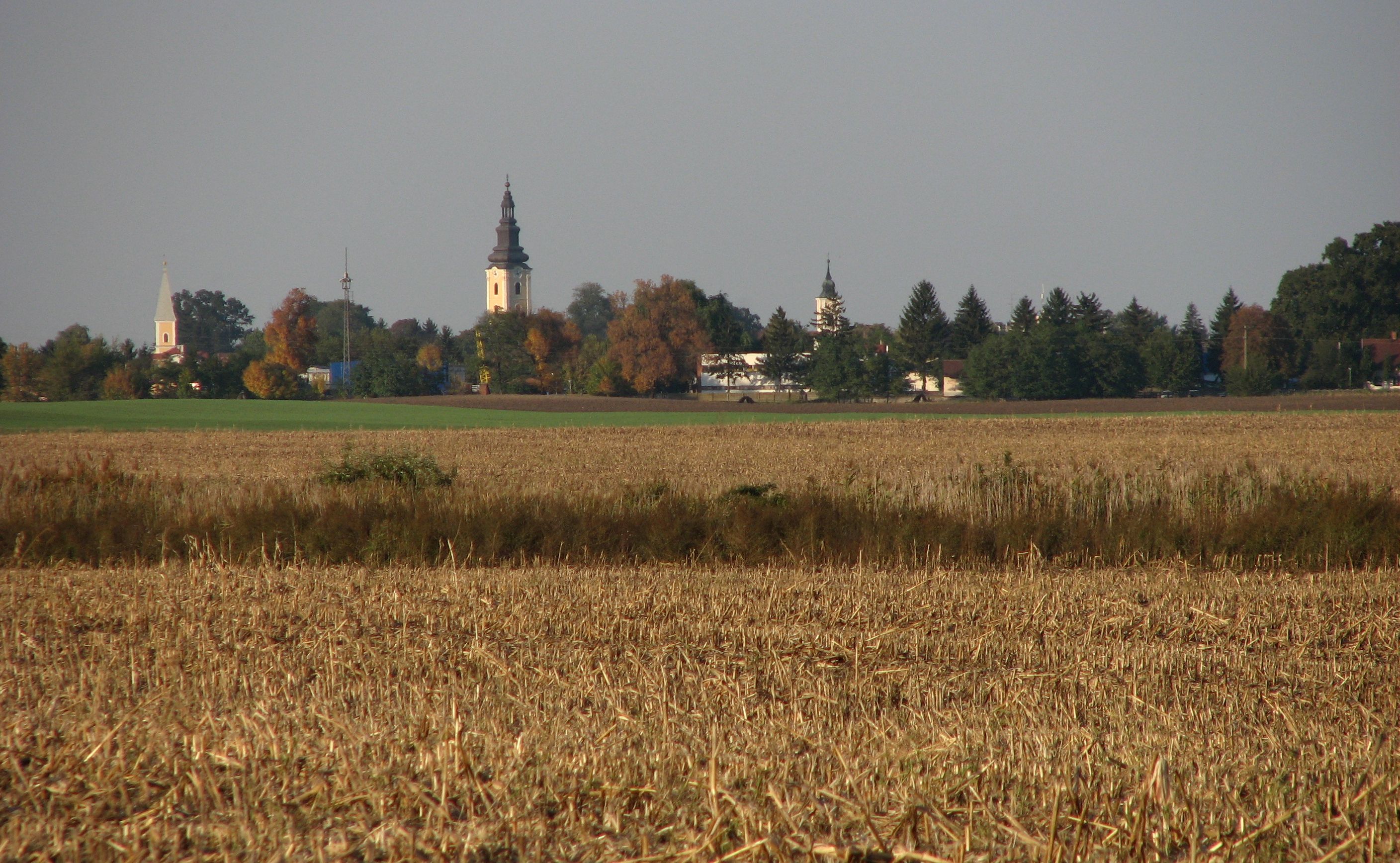STRATEGIC ADVISORY FORUM

Members of the SAF and participants in the last SAF meeting, at EPC, Brussels the 12 March, 2019
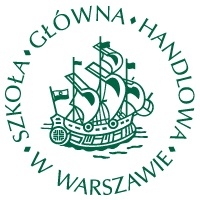

Chair: Jacek Szlachta – Warsaw School of Economics, WSE, Warsaw

Jacek Szlachta is a Full Professor of Warsaw School of Economics, a Vice-Chairman of Committee for Spatial Economy and Regional Planning, a member of the National Economy Editorial Board, a member of the German Academy for Urban and Regional Spatial Planning, an expert of the European Commission in Georgia. Between 2002 – 2004 he was the President of the Regional Policy Board. In 1995, he became a Chairman of the Committee on Spatial Development of the Baltic Sea Region. During his term the intergovernmental programme VASAB 2000 Plus – Spatial Planning Systems in the Baltic Sea Region countries was adopted. As an expert he was involved in preparation of the Polish negotiating position in the sphere of European Cohesion Policy for 2004-2006 and 2007-2013.
Selected articles/books
- Szlachta, J. & Zaleski, J. (2017) Challenges of Future EU Cohesion Policy. Gospodarka Narodowa, 5, pp. 31-49.
- Szlachta, J. (2015) Recommendations for Applying Territorial Cohesion Concept for Conducting European Cohesion Policy in Line With the Territorial Rules Provided by the Treaty. Instytut Rozwoju Institute for Development Working Papers, Working Paper no. 007/2015 (026) ver. 1.
- Szlachta, J. (2015) Recommendations for Applying Territorial Cohesion Concept for Conducting Development Policy. Territorial Aspects of Public Policies. Instytut Rozwoju Institute for Development Working Papers, Working Paper no. 016/2015 (035) ver. 1.
- Szlachta, J. & Zaucha, J. (2015) Role of territorial cohesion in pursuing development policies in Europe and in Poland. Instytut Rozwoju Institute for Development Working Papers, Working Paper no. 009/2015 (028) ver. 1.
Co-chair: Marjorie Jouen – Jacques Delors Institute, JDI, Paris

Marjorie Jouen has a degree in political science (1979) and a former student of ENA (Ecole nationale d’administration 1989). She has held various positions as a senior official of the French Ministry of Finance and in the European institutions: high-level expert at the General Commissariat for Territorial Equality (CGET) (since 2013), member of the cabinet of the President of the Committee of the Regions of the European Union (Mercedes Bresso 2010-2012 and Michel Delebarre 2006-2008), member of the Forward Planning Unit of the European Commission (1993-1998) in charge of territorial and social issues, Head of the Department of European Affairs To DATAR (1998-1999) and head of the European Union and Enlargement office at DG Trésor at the Ministry of Economy (2002-2005).
Selected articles/books
- Jouen, M. (2018) For a Regional Solidarity Policy After 2020. Europe for all Policy Brief.
- Jouen, M. (2017) The Future Cohesion Policy Should Represent EU Solidarity in Action. Warsaw Conference, co-organised by the European Committee of the Regions and the Region of Mazovia.
- Jouen, M. (2016) What Future Priorities for the Cohesion Policy After 2020? the European Committee of the Regions conference.
- Jouen, M. & Palpant, C. (2005) For a new European social contract. Notre Europe, Studies & Research N°43.
- Jouen, M. & Palpant, C. (2005) Social Europe in the throes of enlargement. Notre Europe, Policy papers N°15.
Rudiger Ahrend (OECD, FR)

Dr Rudiger Ahrend is Head of the Urban Programme in the OECD’s Directorate for Public Governance and Territorial Development. In this capacity, he has been supervising numerous urban projects, for example on metropolitan development and governance, urban productivity, land use, housing, green growth, urban transport, and national urban policies. He has also supervised numerous reviews and case studies of major metropolitan agglomerations, and is the main author of “The Metropolitan Century: Understanding Urbanisation and its Consequences”. As Head of the Urban Programme, he is also in charge of the OECD Working Party on Urban Policies, as well as the OECD Roundtable of Mayors and Ministers.
Selected articles/books
- Ahrend, R., Farchy, E., Kaplanis, I. & Lembcke, A. C. (2016) What Makes Cities More Productive? Evidence from 5 OECD Countries on the Role of Urban Governance, Beiträge zur Jahrestagung des Ausschusses für Wirtschaftssysteme und Institutionenökonomik im Verein für Socialpolitik: “Governance in Politik und Wirtschaft”, 11.-13.
- Ahrend, R. & A. Lembcke (2016) Does It Pay to Live in Big(ger) Cities?: The Role of Agglomeration Benefits, Local Amenities, and Costs of Living, OECD Regional Development Working Papers, 2016/09, OECD Publishing, Paris.
- Ahrend, R. & A. Schumann (2014) Does Regional Economic Growth Depend on Proximity to Urban Centres?, OECD Regional Development Working Papers, 2014/07, OECD Publishing, Paris.
- Ahrend, R. et al. (2014) What Makes Cities More Productive? Evidence on the Role of Urban Governance from Five OECD Countries, OECD Regional Development Working Papers, 2014/05, OECD Publishing, Paris.
- Ahrend, R. & A. Schumann (2014) Approaches to Metropolitan Area Governance: A Country Overview, OECD Regional Development Working Papers, 2014/03, OECD Publishing, Paris.
John Bachtler (UK)

John Bachtler is Professor of European Policy Studies and a Director of EPRC at the University of Strathclyde. He has a BA (Hons) in Geography from the University of Wales and undertook postgraduate research at the University of Birmingham. His research experience is principally on regional and industrial development in Europe, encompassing the regional policies of the EU28 Member States and Candidate Countries, the structural and cohesion policies of the European Union and EU enlargement. He has led EPRC research on regional policy as well as the evaluation of Structural Fund programmes, EU regional development strategies and the implementation of the Funds. Recent work focuses on administrative capacity and the implementation of EU Cohesion policy.
Selected articles/books
- Bachtler, J., Mendez, C. & Wishlade, F. (2018) Proposals for the MFF and Cohesion Policy 2021-27: a preliminary assessment. Paper prepared for the EoRPA Meeting held at EPRC Delft.
- Bachtler, J., Kah, S. & Ferry, M. (2016) Research for Regi Committee – Maximisation of Synergies Between European Structural and Investment Funds and Other EU Instruments to Attain Europe 2020 Goals. Directorate General for Internal Policies Policy Department B: Structural and Cohesion Policies Regional Development.
- Bachtler, J., Kah, S., Mendez, C. & Miller, S. (2015) Strategic coherence of Cohesion Policy: comparison of the 2007-13 and 2014-20 programming periods. Directorate General for Internal Policies Policy Department B: Structural and Cohesion Policies Regional Development.
- Polverari, L., Bachtler, J. & Arno van der Zwet (2015) Evaluating the Effectiveness of Regional Policy. European Policies Research Centre.
- Mendez, C. & Bachtler, J. (2015) Prospects for Cohesion Policy in 2014-20 and Beyond: Progress with Programming and Reflections on the Future. European Policies Research Centre.
Fabrizio Barca (IT)

Fabrizio Barca is a lecturer in corporate finance and Italian economy history. He worked as a lecturer at the universities of Bocconi, Modena, Paris (SPO), Siena, Rome and Parma. He’s public posts included the division chief at the research department of the Bank of Italy, chief of the department of development and cohesion policies at the treasury and the president of OECD’s territorial policies committee (1999). He worked as a special advisor to the European Union commissioner responsible for regional policy. In April 2009, he developed an independent report for the European Commission, entitled An agenda for a reformed cohesion policy. In addition, Barca was the director of the department of development policies in the ministry of economy and finance until his appointment as minister in 2011.
Selected articles/books
- Barca, F. (2009) Towards a territorial social agenda for the European Union.
- Barca, F., Rodríguez-Pose A. & McCann, P. (2012) The Case for Regional Development Intervention: Place-Based Versus Place-Neutral Approaches. Journal of regional science, 52(1), 2012, pp. 134–152.
- Barca, F. (2009) An Agenda for a Reformed Cohesion Policy. A place-based approach to meeting European Union challenges and expectations.
- Barca, F. (2017) The European Union’s Great Opportunity. 7th Cohesion Forum, 26-27 June, Brussel.
Simin Davoudi (UK)

Simin Davoudi is Professor of Environment Policy & Planning and Director of Global Urban Research Unit (GURU) at the School of Architecture, Planning & Landscape. She is past President of the Association of the European Schools of Planning (AESOP), Fellow of the Royal Town Planning Institute (FRTPI), Fellow of the Academy of Social Sciences (FAcSS) and Fellow of the Royal Society of Arts (FRSA). She has served as expert advisor for the UK Government, led the Office of Deputy Prime Minister’s Planning Research Network (2002-2006), served on the Social Science Expert Panel (2011-2015) for Department of the Environment, Food and Rural Affairs (DEFRA) and Department of Energy and Climate Change (DECC) and Expert Panel on Housing Markets and Planning Analysis for Department of Communities and Local Government (DCLG). She is a member of DEFRA Science Advisory Council’s Social Science Expert Group.
Selected articles/books
- Davoudi, S., Sykes, O., Raynor, R. & Shaw, D. (2018) Policy and Practice: Spatial imaginaries: tyrannies or transformations? The Town planning review, 89(2).
- Davoudi, S. (2017) Spatial Planning: the Promised Land or roll-out neoliberalism? The Routledge Handbook of Planning Theory
- Davoudi, S., et al. (2017) Exploring urban metabolism – Towards an interdisciplinary perspective. Resources, Conservation and Recycling, 132, 190-203.
- Davoudi S. & Sturzaker J. (2017) Urban form, policy packaging and sustainable urban metabolism. Resources, Conservation and Recycling, 120, 55-64.
- Davoudi, s. (2014) Urban Futures. In: M. Tewdwr-Jones, N. Phelps and R. Freestone, ed. The Planning Imagination: Peter Hall and the Study of Urban and Regional Planning. Oxon: Routledge, pp.252-267.
Andreas Faludi (NL)

Andreas Faludi studied architecture and urban planning at the Technical University of Vienna. In his ‘English’ period, he brought together different lines in the planning theory and connected these to the philosophical debate around critical rationalism. Through his actions, the planning discipline managed to develop a strong theoretical foundation. The past fifteen years, he has been the big man behind the analysis of European planning. He worked at various Dutch universities as a professor of Urban Design (Delft, 1974-1977), Planning (Amsterdam, 1977-1998) and Spatial Policy Systems in Europe (Nijmegen 1999-2004). In 2009 he was appointed Honorary Member of the Association of European Schools of Planning (AESOP). Currently, he works at the Delft University of Technology.
Selected articles/books
- Faludi, A. (2015) Place is a no-man’s land. Geographia Polonica, 88, 1, pp. 5-20.
- Faludi, A. (2016) EU territorial cohesion, a contradiction in terms. Planning Theory & Practice, 17:2, 302-313.
- Faludi, A. (2016) The Poverty of Territorialism: Revisiting European Spatial Planning.
- Faludi, A. (2016) ‘European integration and the Territorial-Administrative Complex’, Geografiska Annaler: Series B, Human Geography 98 (1): 1–10.
- Faludi, A. (2018) Beyond Territorialism: Europe as an Archipelago. CIST2018 proceedings, Représenter les territoires // Representing territories
- Faludi, A. (2016) The Poverty of Territorialism, A Neo-Medieval View of Europe and European Planning. Elgar
Klaus Kunzmann (DE)

Klaus R. Kunzmann studied architecture and urban planning at the Technische Hochschule München and received his Ph.D. in planning from the Technische Universität Wien, Austria, in 1971. From 1974 to 2006 he was Professor and director of the Institut für Raumplanung (IRPUD) at the School of Planning, Technische Universität Dortmund. From 1994 until his retirement, he held the Jean Monnet Chair for European Spatial Planning. Today, his research interests are, on innovative urban policy and European spatial planning, on regional restructuring and slow regional development, on the role of creativity, knowledge and the arts for spatial and endogenous economic development, and, more recently, in the consequences of China’s rapid economic growth for cities and regions in Europe. He has published extensively on these areas, and on the future of the European city region.
Selected articles/books
- Kunzmann, R. K.: Medium-sized Towns, Strategic Planning and Creative Governance in the South Baltic Arc.
- Kunzmann, R. K. (2012) Creativity in Planning: a Fuzzy Concept? DISP 41(162)
- Kunzmann, R. K. (2004) Culture, creativity and spatial planning. TPR, 75 (4).
- Albrechts, L., Healey, P. & Kunzmann, R. K. (2003) Strategic Spatial Planning and Regional Governance in Europe, Journal of the American Planning Association, 69:2, 113-129.
Peter Nijkamp (NL)

Peter Nijkamp is Emeritus Professor in regional and urban economics, and in economic geography at Vrije Universiteit Amsterdam. From 2009-2015, he was Honorary University Professor at the same university. He has been president of the governing board of the Netherlands Research Council (NWO) (2002-2009). He is also former president of the European Regional Science Association and of the Regional Science Association International. He is fellow of the Royal Netherlands Academy of Sciences, and former vice-president of this organization. In 1996, HE was awarded the most prestigious scientific prize in the Netherlands, the Spinoza award. He’s main research interests cover plan evaluation, multicriteria analysis, regional and urban planning, transport systems analysis, mathematical modelling of spatial systems, migration, technological innovation, and environmental and resource management.
Selected articles/books
- Nijkamp, P. & Poot, J. (2015) Cultural Diversity: A Matter of Measurement, IZA Discussion Papers 8782, Institute for the Study of Labor (IZA).
- Arribas-Bel, D., Nijkamp, P. & Poot, J. (2014) How Diverse Can Spatial Measures of Cultural Diversity Be? Results from Monte Carlo Simulations of an Agent-Based Model, IZA Discussion Papers 8251, Institute for the Study of Labor (IZA).
- Tubadji, A., Gheasi, M. & Nijkamp, P. (2014) Immigrants’ ‘Ability’ and Welfare as a Function of Cultural Diversity: Effect of Cultural Capital at Individual and Local Level, IZA Discussion Papers 8460, Institute for the Study of Labor (IZA).
- Batabyal, A. & Nijkamp, P. (2014) Innovation, Decentralization, and Planning in a Multi-Region Model of Schumpeterian Economic Growth, ERSA conference papers ersa14p889, European Regional Science Association.
- Wang, Z., de Graaff, T. & Nijkamp, P. (2014) The choice of migration destinations: cultural diversity versus cultural distance, ERSA conference papers ersa14p1147, European Regional Science Association.
Mila Mancheva (BG)

Mila Mancheva is responsible for the migration related studies and projects of the CSD Sociological Program. Her interests include migration and development, labour migration, transnational migration networks, human rights. Her previous work includes policy work in the spheres of counter-trafficking, border management and migrant rights advocacy for the Sofia Mission of the International Organization for Migration and migration research conducted in cooperation with various academic institutions around Europe. She has a Ph.D. in history from the Central European University in Budapest and was a Postdoctoral Humboldt Fellow in migration studies at the Institute for East European Studies, Free University, Berlin.
Selected articles/books
- Mancheva, M. & Derelieva, L. (2015) FRA EU wide study “Migrants and their Descendants: Social Inclusion and Participation in Society”.
- Mancheva, M., Nonchev, A. & Ivanova, S. (2015) Assessing the Integration of Vulnerable Migrant Groups in Ten EU Member States. Center for the Study of Democracy.
- Mancheva, M. (2015) Risks of Islamist Radicalisation, in Shentov, O and B. Todorov (eds.) Radicalisation in Bulgaria: Threats and Trends, Sofia – Center for the Study of Democracy.
Philip McCann (UK)

Philip McCann is Professor of Urban and Regional Economics in the University of Sheffield Management School. He is also the Tagliaferri Research Fellow in the Department of Land Economy at the University of Cambridge 2015-2018 and Honorary Professor of Economic Geography in the Faculty of Spatial Sciences at the University of Groningen, The Netherlands, 2017-2022. He has been a Special Adviser to two European Commissioners (Commissioner Johannes Hahn 2010-2013 and Commissioner Corina Creţu 2015-2016), Chief Independent Economic Advisor on the EU Sixth Report on Economic, Social and Territorial Cohesion, an advisor to the Directorate General for Regional and Urban Policy at the European Commission, four different directorates at the OECD Paris, the European Investment Bank, as well as government ministries and research institutes in several countries. He is also the author of The Regional and Urban Policy of the European Union: Cohesion, Results-Orientation and Smart Specialisation, 2015, Edward Elgar, the most up-to-date analysis of the European regional and urban economic landscape.
Selected articles/books
- McCann, P. (2018) The trade, geography and regional implications of Brexit. Papers in Regional Science.
- Iammarino, S., McCann, P. & Ortega-Argiles, R. (2018) International business, cities and competitiveness: recent trends and future challenges. Competitiveness Review, 28(3) 236-251.
- Los, B., McCann, P., Springford, J. & Thissen, M. (2017). The mismatch between local voting and the local economic consequences of Brexit. Regional Studies, 51(5) 786-799.
- Chen, W., Los, B., McCann, P. & Ortega-Argiles, R.: (2017) The continental divide? Economic exposure to Brexit in regions and countries on both sides of the Channel. Papers in Regional Science.
Tatjana Muravska (LV)

Tatjana Muravska is Professor of Regional and European integration studies at the University of Latvia (LU). Since the early 1990s, she has been involved in the process of designing and teaching courses in European Studies at LU, and has been a visiting professor at partner universities in Europe, Canada and India. She has held fellowships in a number of academic institutions in the EU and Canada. Since 2000, she has been Director of the Centre for European and Transition Studies, European Studies Master Programme, Doctoral School for European Integration and Baltic Sea Region Studies, academic coordinator of the Jean Monnet Centre of Excellence, and Jean Monnet Chair ad personam at LU, as well as the former President of Latvian European Community Studies Association. She has been involved in EU, World Bank, UNDP, and CIDA research projects. Her research covers economic, social, and regional policy issues in the EU and New Member States with a special focus on EU structural funds implementation and energy policy in the EU and Baltic States.
Selected articles/books
- Muravska, T. & Berlin, A. (2014) EU Eastern Partnership: From Capacities to Excellence Strengthening Research, Regional and Innovation Policies in the Context of Horizon 2020. University of Latvia Press.
- Muravska, T., Petrov, R., Sloka, B. & Vaivads, J. (2011) European Integration and Baltic Sea Region: Diversity and Perspectives. The University of Latvia Press.
- Muravska, T.: The Impact of Migration and Social Dialog on Economic Development of Latvia.
Michael Parkinson (UK)

Michael Parkinson is Associate Pro Vice Chancellor for civic engagement at the University of Liverpool and Ambassador for the Heseltine Institute for Public Policy and Practice. He has acted as adviser on urban affairs to the European Commission, the European Parliament, OECD, EUROCITIES, the Department of Communities and Local Government, the National Audit Office, the House of Commons Select Committees, the Core Cities and a range of cities in the UK and Europe. He is currently a Board member of the Prime Ministers Regeneration Investment Organisation, a Trustee of the Centre for Cities, of Alternative Futures Group and of Procure Plus Group. Michael led CLG’s expert panel on Regeneration and Economic Development Analysis until 2010. He was Director of the ESRC’s Programme on CITIES: Cohesion and Competitiveness, a major five-year research programme involving 25 Universities.
Selected articles/books
- Parkinson, M., et al. (2012) Second Tier Cities in Europe: In An Age of Austerity Why Invest Beyond the Capitals? Liverpool John Moores University
- Parkinson, M. & Evans, R. (2016) The State of Liverpool City Region Report: Making the Most of Devolution. Liverpool John Moores University
- Parkinson, M., Ball, M., Blake, N. & Key, T. (2009) The Credit Crunch and Regeneration: Impact and Implications. An independent report to the Department for Communities and Local Government.
- Parkinson, M., Meegan, R. & Karecha, J. (2014) UK City-Regions in Growth and Recession: How Are They Performing at Home and Abroad? Economic and Social Research Council.
- Parkinson, M. (2016) UK city regions: policies, performance and prospects.
Tea Nõmmann (EE)

Tea Nõmmann is currently working as a programme director for the Environmental Economics Programme of SEI Tallinn. She also served as the centre director from 2007 to 2016. She has her education in environmental policy, public administration, production management and economics. The main focus is on integration of economic and environmental policies as well as sustainable development indicators. She is also interested in researching micro-macro linkages of environmental accounting. She also has experience in environmental management systems in private and public sector. Her recent work has focused on valuing marine and inland waters ecosystem services and the integration of economic and social analysis into marine policies. Her fields of interest and research include how to enable better policy decisions via the usage of environmental economic accounting and relevant modelling tools as well as the analysis of institutional barriers to take up inclusive national wealth accounting and management.
Selected articles/books
- Tuhkanen, H., Urbel-piirsalu, E., Nõmmann, T., Czajkowski, M. & Hanley, N. (2015) Valuing the benefits of improved marine environmental quality under multiple stressors. Working Papers No. 41/2015 (189).
- Nõmmann, T., et al. (2010) Baltic Survey – A survey study in the Baltic Sea countries on people´s attitudes and use of the sea – Report on basic findings. Swedish Environmental Protection Agency.
- Peterson, K., Moora, H., Nõmmann, T., Poltimäe, H., Saava, A. & Kuldna, P. (2010) Natural environment and the quality of life. Peterson, K., H. Moora, T. Nõmmann, H. Poltimäe, A. Saava and P. Kuldna (2010). Natural environment and the quality of life. In: Estonian Human Development Report 2009. Tallinn: Eesti Ajalehed AS. ISBN 14065401 Pp. 26-48.
- Tuhkanen, H. & Nõmmann, T. (2008). The economic value of ecosystem services provided by the Baltic Sea and Skagerrak. In: Hasselström, L., Söderqvist, T. The Economic Value of Ecosystem Services Provided by the Baltic Sea: Existing Information and Gaps of Knowledge, Swedish Environmental Protection Agency, Stockholm. 15 p.
Slavo Radošević (UK)

Professor of Industry and Innovation Studies at the School of Slavonic and East European Studies (SSEES). He’s research is in area of economics of technological change and innovation studies with special emphasis on countries of central and Eastern Europe. He does research from neo-Schumpeterian perspective in particular exploring issues of growth and structural change through innovation systems, entrepreneurship, international business and innovation policy perspectives. He teaches his own designed courses on industrial and corporate change, political economy of international business. He has been involved in courses on Energy, technology and innovation, Economics of industrial change in Europe, International trade and Statistics.
Selected articles/books
- Radošević, S. & Ciampi Stancova, K. (2018) Internationalising Smart Specialisation: Assessment and Issues in the Case of EU New Member States. Journal of the Knowledge Economy, 9 (1), pp. 263–293.
- Izsak, K & Radošević, S. (2017) EU Research and Innovation Policies as Factors of Convergence or Divergence after the Crisis. Science and Public Policy, 44 (2) pp. 274-283.
- Luca Bruno, R., Douarin, E., Korosteleva. J. & Radošević, S. (2015) Technology choices and growth: testing New Structural Economics in Transition Economies, Journal of Economic Policy Reform, 18:2, pp. 131-152.
- Berglof, E., Yifu Lin, J. & Radošević, S. (2015) Transition economics meet new structural economics: editorial introduction, Journal of Economic Policy Reform, 18:2, pp. 89-95.
- Izsak, K., Markianidou, P. & Radošević, S. (2014) Convergence among national innovation policy mixes in Europe – an analysis of research and innovation policy measures in the period 2004- 2012, GRINCOH Working Paper Series, Paper No. 3.11
- Radošević, S. (2012) Innovation Policy Studies Between Theory and Practice: A Literature Review Based Analysis. STI Policy Review, 3 (1), pp. 1 – 45.
- Radosevic, S., & Kravtsova, V. (2012). Are systems of innovation in Eastern Europe efficient?. Economic Systems, 36 (1), 109-126.
Andrés Rodriguez-Pose (UK)

Professor of Economic Geography at the London School of Economics, where he was previously Head of the Department of Geography and Environment. He is the immediate Past President of the Regional Science Association International (2015-2017). He served as Vice-President of the RSAI in 2014 and has also been Vice-President (2012-2013) and Secretary (2001-2005) of the European Regional Science Association. He is a regular advisor to numerous international organizations, including the European Commission, the European Investment Bank, the World Bank, the Cities Alliance, the OECD, the International Labour Organization, the Food and Agriculture Organization, the Inter-American Development Bank, and the Development Bank of Latin America. He is an editor of Economic Geography and sits on the editorial board of 33 other scholarly journals, including many of the leading international journals in economic geography, human geography, regional science, and management. He is a former holder of a European Research Council (ERC) Advanced Grant and the only social scientist to have been awarded the Royal Society-Wolfson Research Merit Award.
Selected articles/books
- Dijkstra, L., Poelman, H. & Rodríguez-Pose, A. (2018) The Geography of EU Discontent and the Revenge of the Places That Don’t Matter. European Week of Regions and Cities Brussels.
- Rodríguez-Pose, A. (2017) The revenge of the places that don’t matter (and what to do about it). Cambridge Journal of Regions, Economy and Society, 11 (1). pp. 189-209.
- Rodríguez-Pose, A. & Ezcurra R. (2009) Does Decentralization Matter for Regional Disparities? A Cross-Country Analysis. SERC Discussion Paper 25.
- Rodríguez-Pose, A., Pike, A., Tomaney, J., Torrisi, G. & Tselios, V. (2010) In Search of the ‘Economic Dividend’ of Devolution: Spatial Disparities, Spatial Economic Policy and Decentralisation in the UK, SERC Discussion Paper 62
- Rodríguez-Pose, A. (2008) Decentralisation and Local and Regional Development. CAF Working Papers N° 2008/04
- Rodríguez-Pose, A., Cataldo, M. & Rainoldi A. (2014) The Role of Government Institutions for Smart Specialisation and Regional Development. JRC Technical Reports.
Janusz Zaleski (PL)

Professor at Institute of Meteorology and Water Management in Warsaw and Wrocław University of Technology, Senior Policy Advisor at Odra-Vistula Flood Management Project Coordination Unit and Director of Strategy at the Wrocław Regional Development Agency. Expert in water management and in regional policy. Governor of Wrocław Province, chairman in the National Council of Governors, advisor to Prime Minister. Chairman of the International Commission of Odra River Protection Against Pollution. Member of the governmental interdepartmental team preparing the National Development Plan 2007–2013 for Poland. He worked as PCU director in World Bank Flood Recovery Project implementing realization of modern flood protection warning and forecasting system for Poland. He is member of the Committee for Spatial Planning and Deputy Chairman of the Water Management Committee of the Polish Academy of Sciences.
Selected articles/books
- Szlachta, J. & Zaleski, J. (2017) Challenges of Future EU Cohesion Policy. Gospodarka Narodowa, 5, pp. 31-49.
- Mogiła, Z & Zaleski, J. (2015) Extending the Regional Hermin Models by Adding Components of Territorial Cohesion. Institute for Development, Working papers no. 014/2015
- Zaleski, J., Kudełko, J., Poproch, A. & Mogiła, Z. (2014) Alternative scenarios of after-crisis conditions for regional growth in the context of the Cohesion Policy – an example of the Polish region of Warmińsko-Mazurskie
- Zaleski, J., Mogiła, Z., & Zaleska, M. (2012) Are the effects of EU Cohesion Policy for the Polish regional labour markets worth their costs? – a study based on the results of counter-factual macroeconomic simulations, 52nd Congress of the European Regional Science Association: “Regions in Motion – Breaking the Path”, Bratislava, Slovakia, European Regional Science Association (ERSA), Louvain-la-Neuve
- Mogiła, Z., Zaleski, J. & Kudełko, J. (2011) Leaders and outliers in the race of regions – EU Cohesion Policy in Poland in the light of macroeconomic modelling, 51st Congress of the European Regional Science Association: “New Challenges for European Regions and Urban Areas in a Globalised World”, Barcelona, Spain, European Regional Science Association (ERSA), Louvain-la-Neuve


